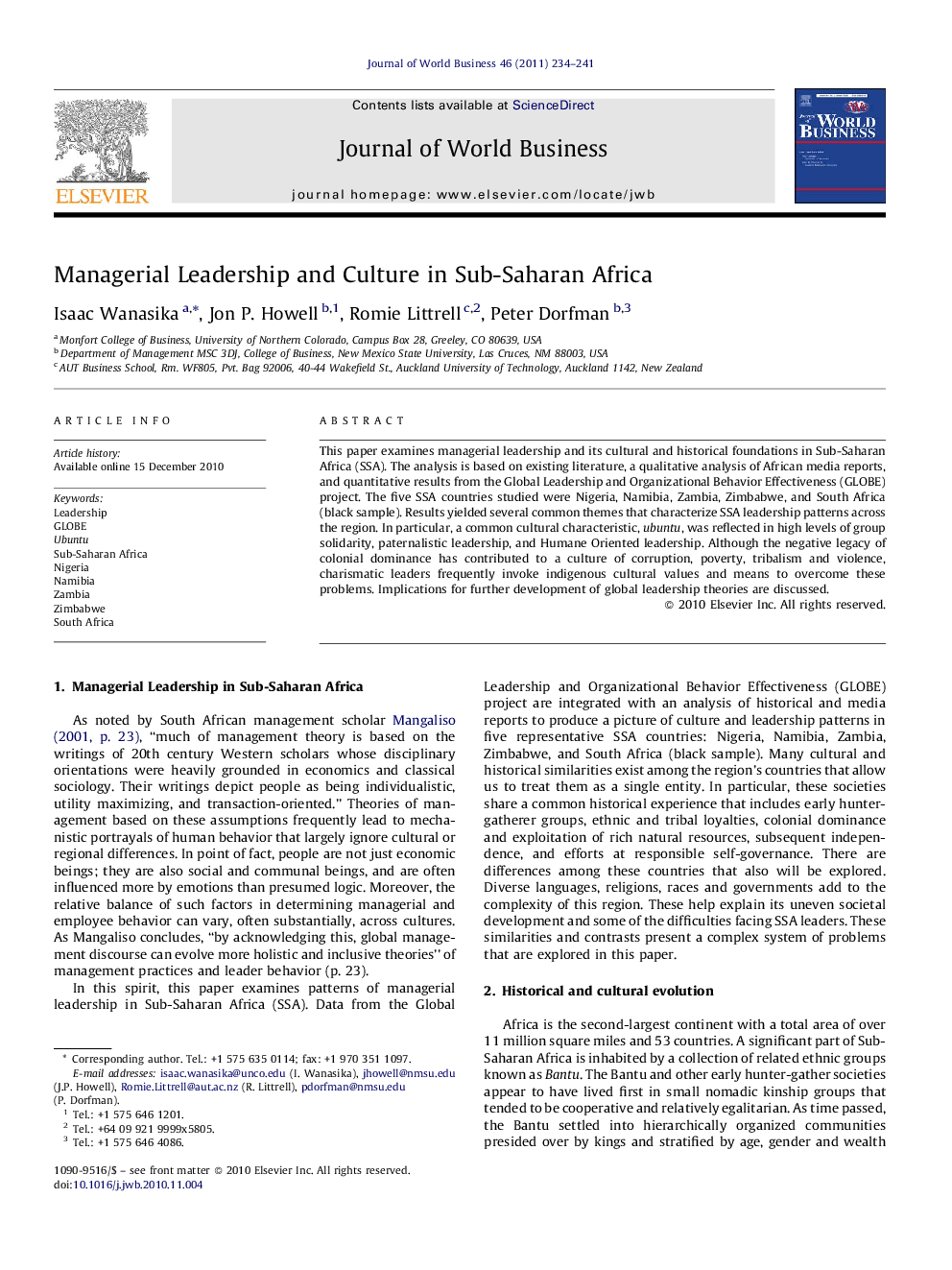| Article ID | Journal | Published Year | Pages | File Type |
|---|---|---|---|---|
| 1002527 | Journal of World Business | 2011 | 8 Pages |
This paper examines managerial leadership and its cultural and historical foundations in Sub-Saharan Africa (SSA). The analysis is based on existing literature, a qualitative analysis of African media reports, and quantitative results from the Global Leadership and Organizational Behavior Effectiveness (GLOBE) project. The five SSA countries studied were Nigeria, Namibia, Zambia, Zimbabwe, and South Africa (black sample). Results yielded several common themes that characterize SSA leadership patterns across the region. In particular, a common cultural characteristic, ubuntu, was reflected in high levels of group solidarity, paternalistic leadership, and Humane Oriented leadership. Although the negative legacy of colonial dominance has contributed to a culture of corruption, poverty, tribalism and violence, charismatic leaders frequently invoke indigenous cultural values and means to overcome these problems. Implications for further development of global leadership theories are discussed.
